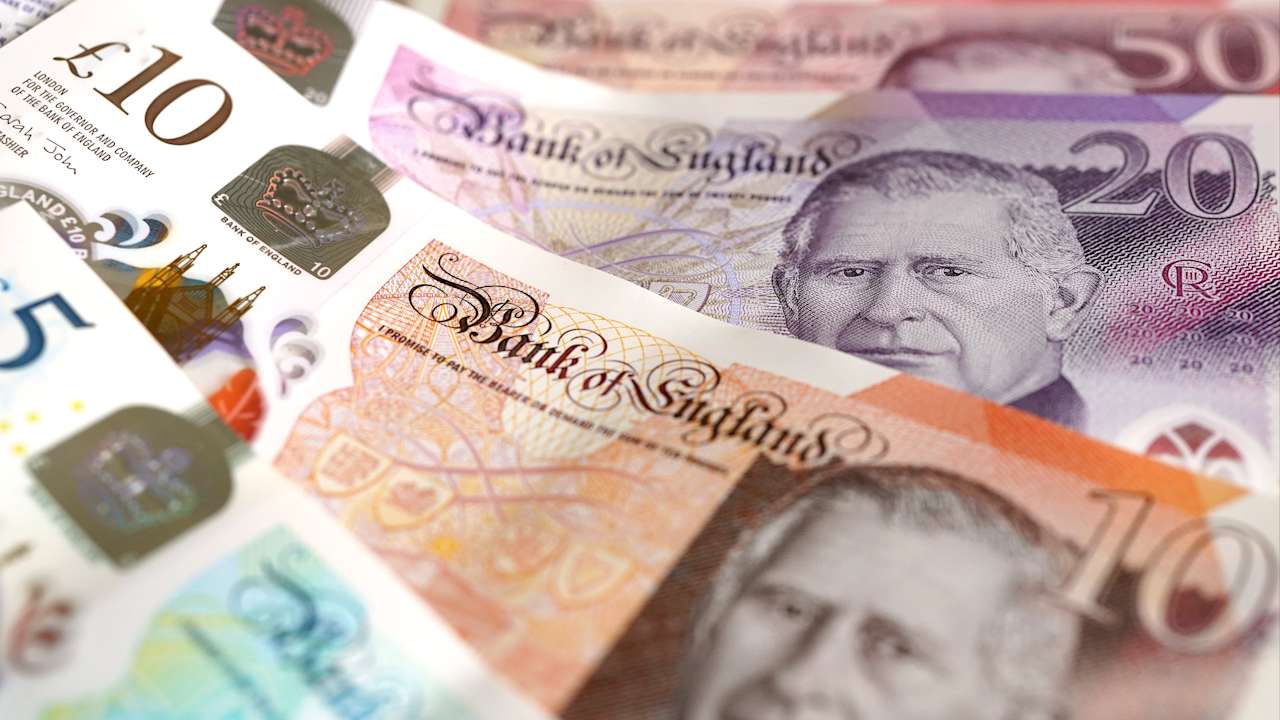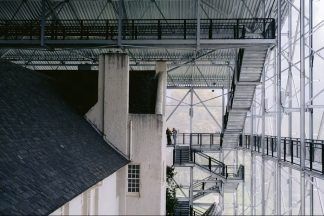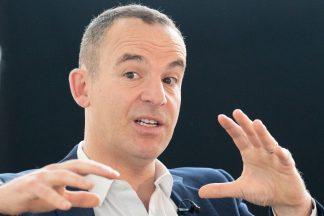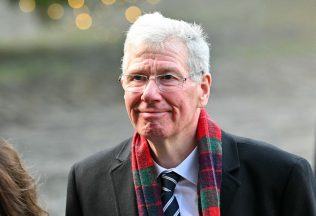ITV News’ Business and Economics Editor Joel Hills explains what impact the changes to the minimum wage could have on the hospitality sector
Each year, the Living Wage Commission gathers information on what sort of level of increase to the minimum wage rates the economy can sustain without destroying jobs.
Its recommendations tend to be accepted by the business lobby, albeit with the odd grumble.
This year, an increase in the National Living Wage rise from £11.44 to £12.21 an hour from next April – an increase of 6.7% – is judged to be a fair and pain-free settlement.
The National Minimum Wage is also set to rise from £8.60 to £10.00 an hour for 18 to 20 year old’s – a much chunkier (16%) step towards Labour’s manifesto pledge to create a single adult rate.
“The government is delivering on its promise to make work pay,” applauds the Trades Union Congress.
The business lobby group is less enthusiastic.
Just over three million workers in Britain are paid the National Living Wage.
The Confederation of British Industry doubts that higher pay will boost their productivity in the way the government suggests and The Federation of Small Businesses says this is a payrise their members will struggle to afford.
The trick here is to strike a balance between raising the living standards of the lowest paid workers in the UK without sacrificing significant numbers of jobs.
For much of the last ten years, the National Living Wage has consistently risen by more than average hourly pay.
National Living Wage relative to Average Hourly Pay in the UK 1999 – 2024.
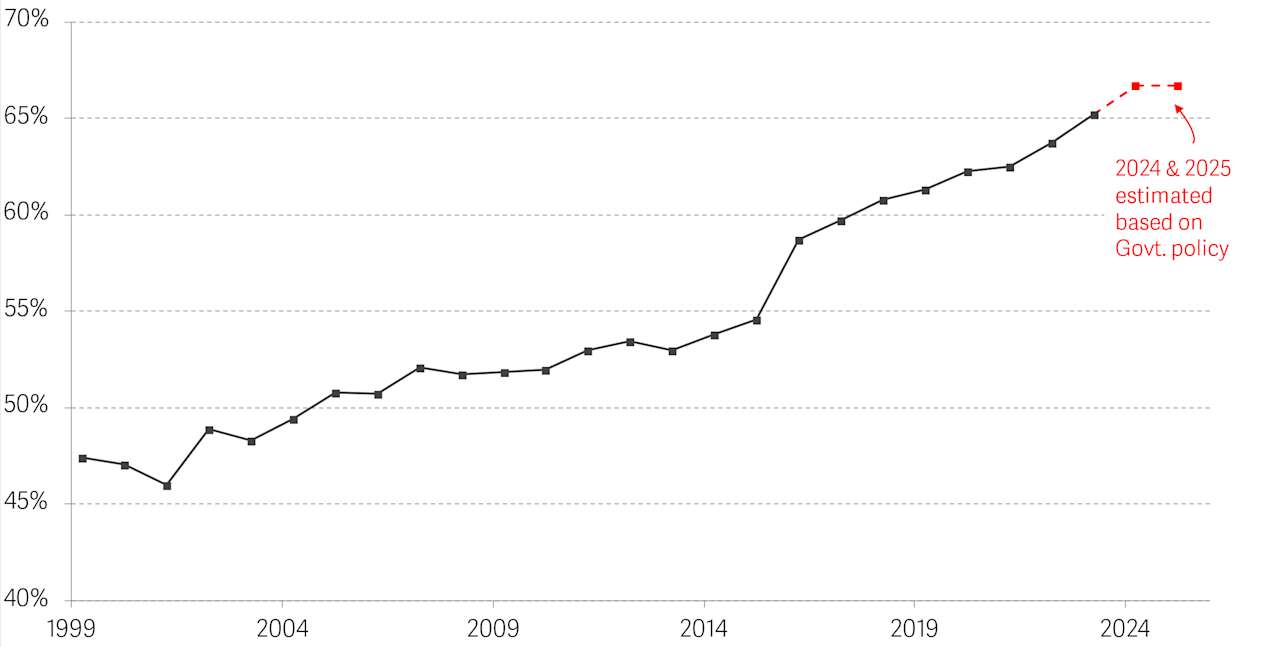
In 2015, the then Chancellor, George Osborne, set a target for it to reach 60% of median earnings by 2020.
In 2019, one of his successors, Sajid Javid, increased the target to 66.7% by 2024.
According to the Resolution Foundation, Javid’s target has been hit and today’s decision will keep it at that level.
Could the government have been more ambitious?
The Resolution Foundation thinks not, not least as the chancellor is expected to increase the rate of national insurance contributions for employers in tomorrow’s budget and lower the threshold above which the tax is paid.
Saddling businesses with higher costs inevitably affects employment but until now the evidence suggests the negative impact has been limited.
However there is a “tipping point,” beyond which increases to the minimum wage begin to cost higher numbers of jobs or damage productivity.
The Low Pay Commission estimates that half of all the jobs paying at or below the minimum wage are in retail, hospitality, cleaning and maintenance.
Hospitality UK represents 700 pubs, bars, restaurants and hotels which collectively employ 3.2 million people.
Kate Nicholls, the chief executive, says the changes to the minimum wage rates and national insurance will add £1.5 billion to the wage bills of her members.
“The consequences will be lower profits, lower business investment, higher prices for consumers, fewer hours for workers and some smaller, independent businesses will fail,” Nicholls says.
The UK now has one of the most generous minimum wages in the world, up there with the likes of France and New Zealand, but the hospitality industry believes the tipping-point has been reached.
Follow STV News on WhatsApp
Scan the QR code on your mobile device for all the latest news from around the country


